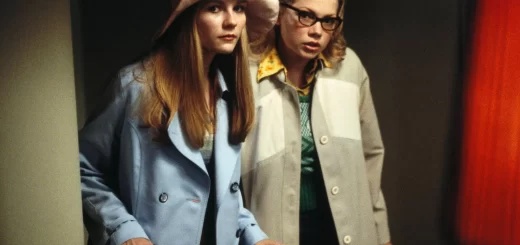The Cave: Deeper and Darker, by David Bax

Not surprisingly, we tend to imagine people who devote their lives to the doing of good deeds as gaining happiness and satisfaction from their works. But in Feras Fayyad’s new documentary, The Cave, we meet a group of medical professionals—and one woman in particular, Amani Ballour—whose undeniable heroism is not always able to dampen the effects of the inhumanity they bravely face every day.
In Ghouta, Syria, five years of constant bombings by the Syrian Army (with Russian air support) has reduced the local hospital to little more than its basement levels, earning it the nickname The Cave. Though Ballour and her team are not characters in a story in the way they would be if this were fiction, Fayyad provides them with an arc in which we see the unceasing helplessness of their situation grind them down and deepen their despair. By the film’s finale, a barrage of wounded, traumatized and dying patients, we understand that the stakes are not whether they can triumph over evil but whether they can keep going until someone helps them.
While The Cave’s final act may be enough to induce post-traumatic stress even in viewers, the onslaught ensues from the beginning. The opening shots show us the remnants of a skyline, like broken, rotted teeth. Before the damage can even register, a new wave of bombs obscures the city in fireballs and smoke. Once we’re below with Ballour, the rockets scream aboveground day and night like B-movie monsters. The sounds of children’s voices and of explosions never come far enough apart. The kinds of prayers offered up from this hospital take the forms of, “Damn them,” “May God destroy the Russians” and other such entreaties.
That last bit is nearly enough to inspire bitter laughter. But the women of The Cave do indulge in gallows humor. The constant need to feed staff and patients amid the scarcity of food and the low quality of ingredients is an ongoing joke, the kind of thing you laugh at to keep from crying or screaming.
The Cave’s unrelenting honesty, even when you may wish for a respite, comes as a result of Fayyad’s intangible skills as a documentarian. The seemingly complete lack of awareness of the camera displayed by his subjects is a rare trick for a director to pull off. Or maybe that kind of self-regard just goes out the window for those constantly surrounded by the death of others and the immediate possibility of their own.
Fayyad undoubtedly has an opinion on the events he’s captured, their position in the world’s list of priorities and what ought to be done about them. But any manipulation here is hard to argue with in the face of the facts and the irrefutable individual moments here that will anger you or break your heart, like the patient who is certain he would get better results at a hospital run by a man or the surgeon who plays soothing music from his phone when he has no anesthetic. The Cave is not the kind of advocacy documentary meant to make you feel good. It’s meant to make you acknowledge that you know right from wrong and ask yourself what you are willing to do about it.




























